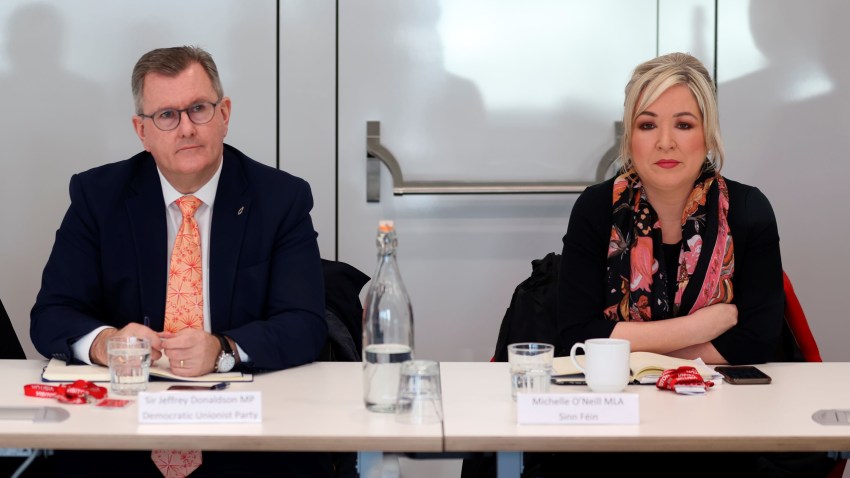After almost two years of stalemate and political wrangling, Northern Ireland’s power-sharing governance system is back up and running. The regional parliament in Belfast, known as Stormont, had been paralyzed since 2022 by the Democratic Unionist Party, or DUP, to protest the post-Brexit trading rules that set Northern Ireland apart from the rest of the United Kingdom. The region’s largest unionist party, the DUP agreed to end its boycott after receiving assurances from the central government in London that linkages between the U.K. and Northern Ireland would be reinforced.
The DUP’s lengthy boycott was just the latest in a long line of disputes that has seen Northern Ireland’s dysfunctional legislative body shuttered for long periods since its establishment. The assembly was first convened in 1998, three months after the signing of the Good Friday Agreement, the comprehensive peace treaty between Catholic nationalists, who favor a united Ireland, and Protestant unionists, who want Northern Ireland to remain part of the United Kingdom. The deal ended a conflict that had fueled three decades of violence in the province, and to a lesser extent in England.
Often euphemistically referred to as “the Troubles,” the conflict was centuries in the making. The Anglo-Norman settlers who colonized the south of Ireland from the 13th century onward intermarried and over time integrated with the native population. Northern Ireland, on the other hand, was more intensely settled by a higher proportion of fundamentalist Scottish Calvinists, who tended to eschew integration and retain their British identity. After the Irish War of Independence in 1921, the price of peace with the British was the exclusion from the new Irish state of the six northern counties where Protestant unionists still constituted a majority.

